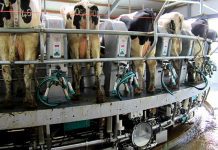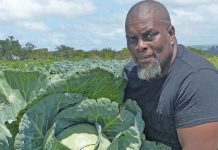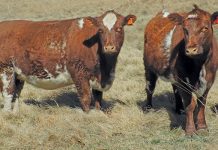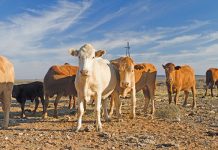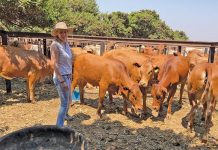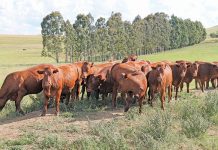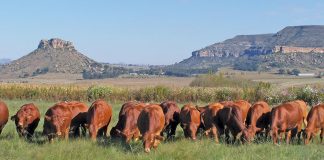The Farmer’s Weekly-ARC Best Elite Charolais Cow for 2011 was selected from a large gene pool under extensive ranching conditions, according to a scientifically-based animal performance recording and evaluation system.
Miss Venus THG 99 065 hails from Clive Marshall’s Marshall Charolais Stud near Werda in southern Botswana. This SP cow was born on 18 December 1999. She first calved at the age of 34 months and had had nine calves by the evaluation date.
The intercalving period (ICP) between her first and second calf was 362 days, the ICP between her second last and last calf was 370 days and her average ICP is 367 days. Her reproduction index (reflecting age at first calving and average ICP) is 111 and her average weaning index is 102.
Her birth weight EBV (direct) is 1,74 (accuracy 84), her birth weight EBV (maternal) is 0,54 (accuracy 84), her weaning weight EBV (direct) is 13,9 (accuracy 81) and her weaning weight EBV (maternal) is 3,8 (accuracy 83). Her mature weight EBV is 40,0 (accuracy 64). Of her three heifers presented, two were approved, as were both bull calves presented.
Kalahari Charolais
The Charolais is a Bos taurus breed originating from France more typically associated with temperate climes and lush pasture, so it’s remarkable how well it has adapted to the harsh Kalahari. But success did not come easily. The Marshall Charolais Stud is the result of hard work, perseverance and commitment dating back decades.
In 1985, Clive came to South Africa from the UK to run Graham Boonzaier’s Blaauklippen Charolais Stud. At that time, with over 300 breeding animals, it was the largest Charolais stud herd in Africa. The Hurvitz Group later appointed Clive to manage its herd of Charolais cows, but ceased operations after Cyril Hurvitz’s death.
Clive joined the Botswana Meat Commission in 2007, and had the chance to buy 60 selected Charolais females from the Hurvitz Stud. He knew the quality of animals in the herd, descendants of the original Blaauklippen genetic lines he sourced from the UK in 1985.
He established the Marshall Charolais Stud in 2007, registered it with the Charolais Cattle Breeders’ Society of South Africa and has been participating in the ARC National Beef Cattle Recording and Improvement Scheme ever since. All females in the herd are SP generation.
Nine cows are classified as Elite, two as Superior and seven as Excellent. Calving success is outstanding: only 0,2% are born dead. The averages age at first calving is 34 months, first ICP is 429 days, last ICP is 414 days and average ICP is 421 days. The average herd birth weight estimated breeding value (EBV) (direct) is 1,87 (accuracy 62), average herd birth weight EBV (maternal) -0,04 (accuracy 58), average herd weaning weight EBV (direct) is 11,1 (accuracy 57) and average herd weaning weight EBV (maternal) is 0,80 (accuracy 56).
Average progeny approval rate in the herd is 96,4% (heifers) and 75,7% (bulls). The stud currently has 179 cows and heifers older than 24 months, and combines a well-established, high quality genetic base with Clive’s extensive experience, obtained through breeding and supplying bulls to the Hurvitz Group’s commercial herd and over 250 local cattlemen.
Clive values quality above all, freely sharing his knowledge of breeding Charolais adapted to Botswana’s extensive ranching operations. He enthusiastically supports agricultural shows and Charolais sales in Botswana, and has compiled a detailed breeding programme for the breed.
“Botswana needs quality animals,” he stresses. “Breeders have to raise the standard, as Batswana appreciate good cattle and will only pay good money for quality animals.”
Call Clive Marshall on +267 712 41912 or email [email protected].

